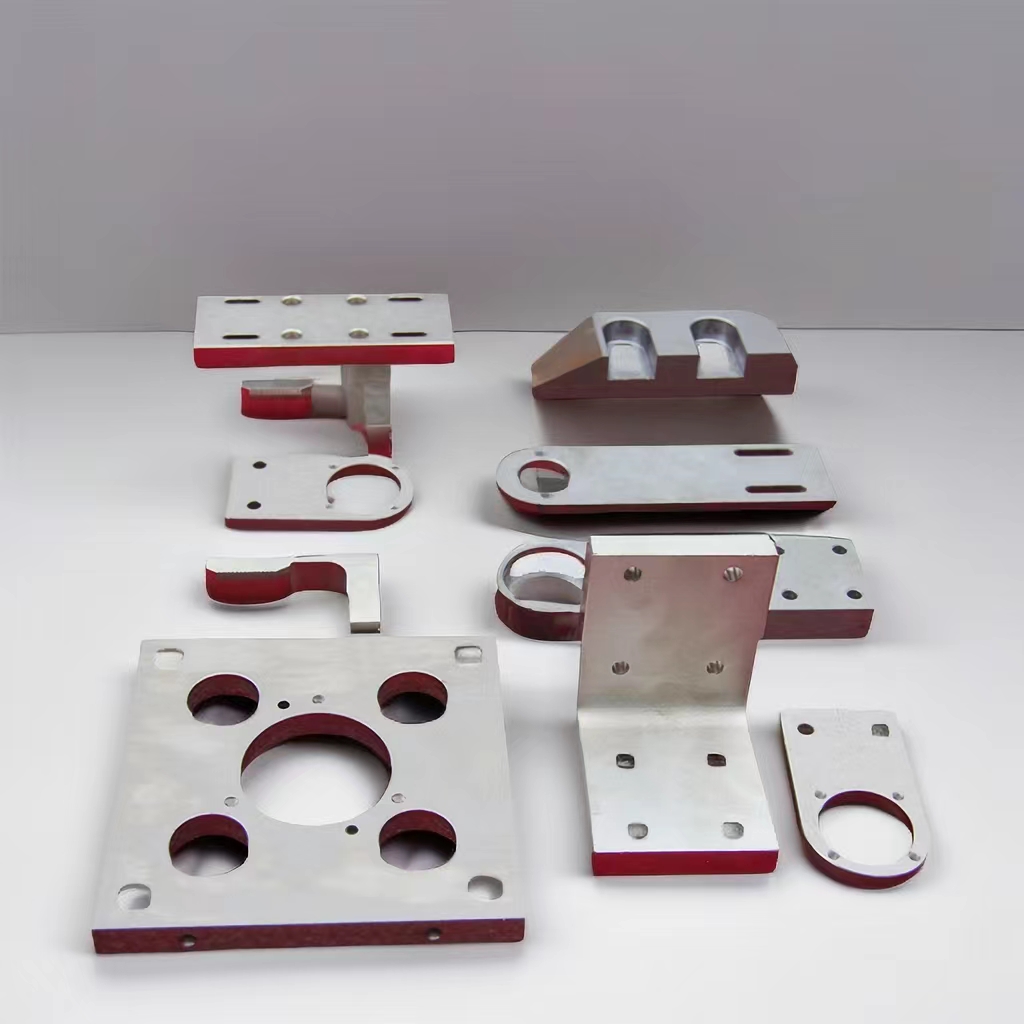Introduction to Machined Components
Machined components are integral parts that find application across various industries, from automotive and aerospace to electronics and medical devices. These components are produced using precision machining techniques that shape raw materials into finished products with high accuracy and specific dimensions.
Material Selection for Machined Components
● Types of Materials Used
The selection of materials is a critical step in the manufacturing process of machined components. Commonly used materials include metals like steel, stainless steel, aluminum, iron, copper, and brass. Non-metal materials such as plastics and composites are also used, depending on the application's requirements.
● Criteria for Material Selection
When choosing materials, factors such as mechanical properties, corrosion resistance, machinability, and cost-effectiveness are considered. The end-use of the component often dictates the material choice to ensure it meets the required performance standards.
Design and Engineering Considerations
● CAD Modeling and Design Software
Computer-Aided Design (CAD) plays a pivotal role in the preliminary stages of manufacturing. Engineers use advanced CAD software to create detailed models and blueprints of the components. These digital models are essential for visualizing the final product and for planning the machining process.
● Importance of Precision and Tolerance
Precision and tolerance are crucial in machining components, especially those used in critical applications. Tolerances define the allowable deviations from the specified dimensions, ensuring parts fit and function correctly. High precision machining is vital for producing components with tight tolerances.
CNC Machining Techniques
● Types of CNC Machines
Computer Numerical Control (CNC) machines are the backbone of modern machining processes. These machines are programmed to perform a variety of tasks with high precision and repeatability. Common types of CNC machines include lathes, milling machines, and routers.
● Common CNC Machining Processes
CNC machining processes such as turning, milling, drilling, and grinding are employed to shape and finish the components. These processes involve removing material from the workpiece to achieve the desired shape and dimensions.
Turning and Milling Processes
● How Turning Differs from Milling
Turning and milling are two primary CNC machining processes. Turning involves rotating the workpiece against a cutting tool to remove material and create cylindrical parts. Milling, on the other hand, uses a rotating cutting tool to remove material from the workpiece, creating flat surfaces and complex shapes.
● Typical Applications for Each Process
Turning is typically used for producing shafts, bushings, and other round components. Milling is versatile and is used to create a wide range of parts, from simple flat surfaces to intricate geometries.
Drilling and Boring Operations
● Purpose and Applications of Drilling
Drilling is a machining process used to create holes in the workpiece. It is a fundamental operation in machining components, essential for parts that require fasteners or need to pass fluids.
● Boring for Precision and Depth Control
Boring is a finishing operation that enlarges existing holes to achieve precise diameters and smooth finishes. It is often employed when tight tolerances and high precision are required.
Tooling and Fixtures in Machining
● Importance of Appropriate Tooling
Selecting the right tooling is crucial for efficient machining. Tools need to be sharp, durable, and suitable for the material being machined. The right tooling enhances productivity and ensures high-quality finishes.
● Role of Fixtures in Enhancing Accuracy
Fixtures are custom work-holding devices used to secure the workpiece during machining. They ensure the workpiece remains stable and accurately positioned, which is vital for maintaining tight tolerances and repeatability.
Quality Control and Inspection Methods
● Techniques for Ensuring Quality
Quality control is an integral part of the machining process, ensuring that the final components meet the required specifications. Techniques such as statistical process control, in-process inspections, and final inspections are used to monitor and verify quality.
● Common Inspection Tools and Equipment
Inspection tools like calipers, micrometers, coordinate measuring machines (CMM), and surface roughness testers are utilized to measure and check the dimensions and surface finish of the machined components.
Finishing Processes and Treatments
● Surface Finishing Techniques
Surface finishing processes such as grinding, polishing, and buffing are performed to achieve the desired surface texture and appearance. These techniques improve the aesthetics and functionality of the components.
● Heat Treatments and Coatings
Heat treatments like annealing, quenching, and tempering are used to alter the mechanical properties of the components, such as hardness and strength. Coatings, including plating and anodizing, provide corrosion resistance and enhance the component's durability.
Future Trends in Machining Technology
● Advancements in Automation and AI
The machining industry is evolving with advancements in automation and artificial intelligence (AI). Automated systems and AI algorithms optimize machining processes, enhance precision, and reduce production times.
● Emerging Materials and Processes
New materials such as advanced composites and high-performance alloys are being developed to meet the growing demands of various industries. Additionally, innovative processes like additive manufacturing are complementing traditional machining methods.
Company Profile: Maxtech
Maxtech is a private enterprise specialized in machining spare parts, located in Yaqian Road, Yaqian Town, Xiaoshan District, Hangzhou. As a professional and reliable manufacturer, we are renowned for our high precision in the sheet metal manufacturing industry. We focus on customizing products based on customer drafts and samples. We provide high-quality services to various industries, including electronics, healthcare, communication, and automobiles. Our comprehensive services include sheet metal stamping parts, CNC parts, and precision machining. With over 30 sets of mechanical equipment and a team of professional engineers, Maxtech is dedicated to delivering exceptional OEM/ODM products and expanding into foreign markets.

Post time: 2024-07-11 12:16:12
